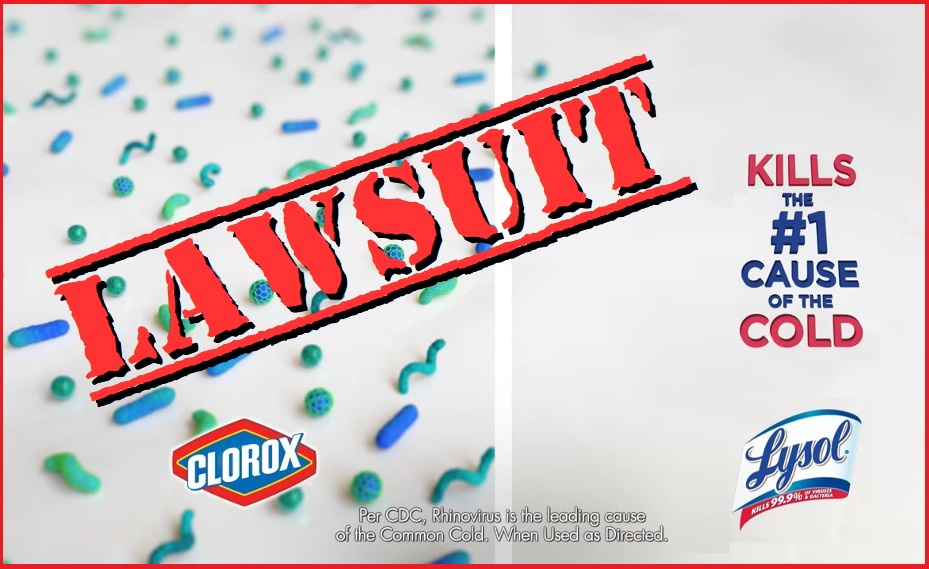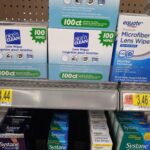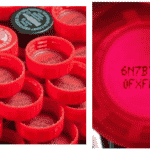
(Updated with comment from Lysol maker Reckitt Benckiser)
Couponers’ stockpiles are often filled with household cleaning supplies – one brand or another is almost always on sale and there are frequently coupons available, so you can stock up on the cheap if you’re not particularly brand loyal.
That’s not what most manufacturers want to hear, though, because brand building is big business. So big, that Clorox is taking severe measures to protect its brand, by filing a federal lawsuit against the maker of Lysol cleaning products for launching what it calls a “false and deceptive advertising campaign” that “falsely disparages multiple Clorox products”.
You may have seen some of the commercials on TV or online. In one set of ads, a side-by-side test of Lysol Daily Cleanser versus Clorox Clean-Up shows that the Clorox product leaves a bleachy residue behind and the Lysol product is pitched as having “safer and simpler ingredients”. A second set of ads pits Lysol Disinfectant Spray against Clorox Disinfecting Wipes, and says only the Lysol product kills the virus that causes the common cold. A third set of ads compares Lysol and Clorox toilet cleaning products, claiming that Lysol’s product has ten times the cleaning power. And one last set of ads features people using Lysol and Clorox wipes to try to lift a 30-pound weight. Lysol’s wipes are strong enough to pass the test, while the Clorox wipes rip immediately.
Convinced now that Lysol’s products are superior? Don’t be, according to Clorox, which claims manufacturer Reckitt Benckiser’s ads for Lysol are all smoke and mirrors.
The ad campaign “features numerous deceptive comparisons to Clorox products, and represents Lysol products as having performance advantages they do not have,” Clorox claims in the lawsuit filed yesterday in a California federal court.
Clorox raises a number of issues with the first set of ads, which compare Lysol Daily Cleanser and Clorox Clean-Up sprays. It’s an “apples-to-oranges” comparison, Clorox claims, because Clorox Clean-Up is meant for deep cleaning and Lysol Daily Cleanser is meant for light everyday use. Instead of using a truly comparable product like Clorox Anywhere in its ad, Clorox says Reckitt uses a “bleach indicator test” to imply that Clorox’s stronger Clean-Up product is somehow unsafe.
The apples-to-oranges comparisons continue in the second set of ads, Clorox claims. The ads compare Lysol spray with Clorox wipes. While it’s true, Clorox allows, that its wipes don’t kill the virus that causes the common cold, it’s also true that Lysol’s wipes don’t either. A true side-by-side comparison between the two brands’ wipes, or the two brands’ disinfecting sprays, would show little difference between the two, Clorox claims, but Lysol uses sleight of hand to show that its products are more effective. “Reckitt has turned the reality that the products are at parity into a fiction that Lysol is superior,” the lawsuit states.
Clorox says the deceptive comparisons are even more apparent in the third set of ads, which claim that Lysol toilet bowl cleaner has “ten times more cleaning power” than Clorox regular liquid bleach – a completely different product from Clorox’s own toilet bowl cleaner. Not only that, Clorox notes skeptically, but one ad “depicts a woman squirting Lysol Toilet Bowl Cleaner into a filthy toilet and watching as it instantly becomes immaculate, without the use of a brush.” The magic of TV! But Clorox isn’t impressed.
Finally, there’s the tear test. Clorox argues that the attempts depicted in the ads to lift weights with Lysol and Clorox wipes are completely fictional. Not only does each ad carry a disclaimer without elaboration that the on-screen test is a “dramatization, based on lab results,” but Clorox claims that the wipes shown on screen aren’t even real, because they’re much longer than either Clorox or Lysol’s actual wipes. As a result, the lawsuit argues, “the depicted ‘dramatization’ does not accurately reflect the results of any rigorous or sound comparative strength testing between the two products.”
So be careful what you believe when you see comparison ads on TV, Clorox would advise. “Consumers deserve truthful information,” Eric Reynolds, executive vice president of Clorox’s cleaning products division, said in a statement. “We’re not opposed to competitive advertising, but we are opposed to advertising designed to mislead.”
While it’s somewhat unusual to litigate such a dispute in a federal court, spats between manufacturers and retailers over comparison ads are far from uncommon. They’re just usually resolved outside the courtroom. Just last month, Procter & Gamble agreed to stop advertising that its Gain Ultra Dish Soap has “30% more degreasers vs. Ajax” and that “one bottle of Dawn Ultra has the grease-cleaning power of three bottles of Ajax Ultra” after Ajax maker Colgate-Palmolive complained to the National Advertising Division, an advertising industry self-regulatory agency billed as “a low-cost alternative to litigation”. Similar disputes that could not be resolved by the NAD have been escalated to the Federal Trade Commission. Still another avenue for dispute resolution was used by the grocery chain Schnucks, when it complained to the offices of two state attorneys general several years ago about Walmart’s price-comparison TV ads.
So for Clorox to head straight to federal court – then immediately issue a news release to announce the lawsuit – would appear to show that it means business. In a statement provided to Coupons in the News Thursday afternoon, Reckitt Benckiser said “We stand behind the claims we make in our advertising and take any accusations of this nature extremely seriously. We cannot comment on the Clorox statement or any other details related to ongoing litigation, but we can state that we would never mislead consumers, as a matter of principle.”
Clorox is seeking a permanent injunction preventing Reckitt from running any more of the “false or misleading comparison” ads, an order for Reckitt to air retraction ads, plus an unspecified amount of monetary damages.
Unlike many couponers, not everyone makes household cleaning product purchasing decisions based on cost alone. The effectiveness of a product matters – and so do the effectiveness of its ads. So the outcome of this case could help determine whether brands are fighting fair, in the battle for your business.















